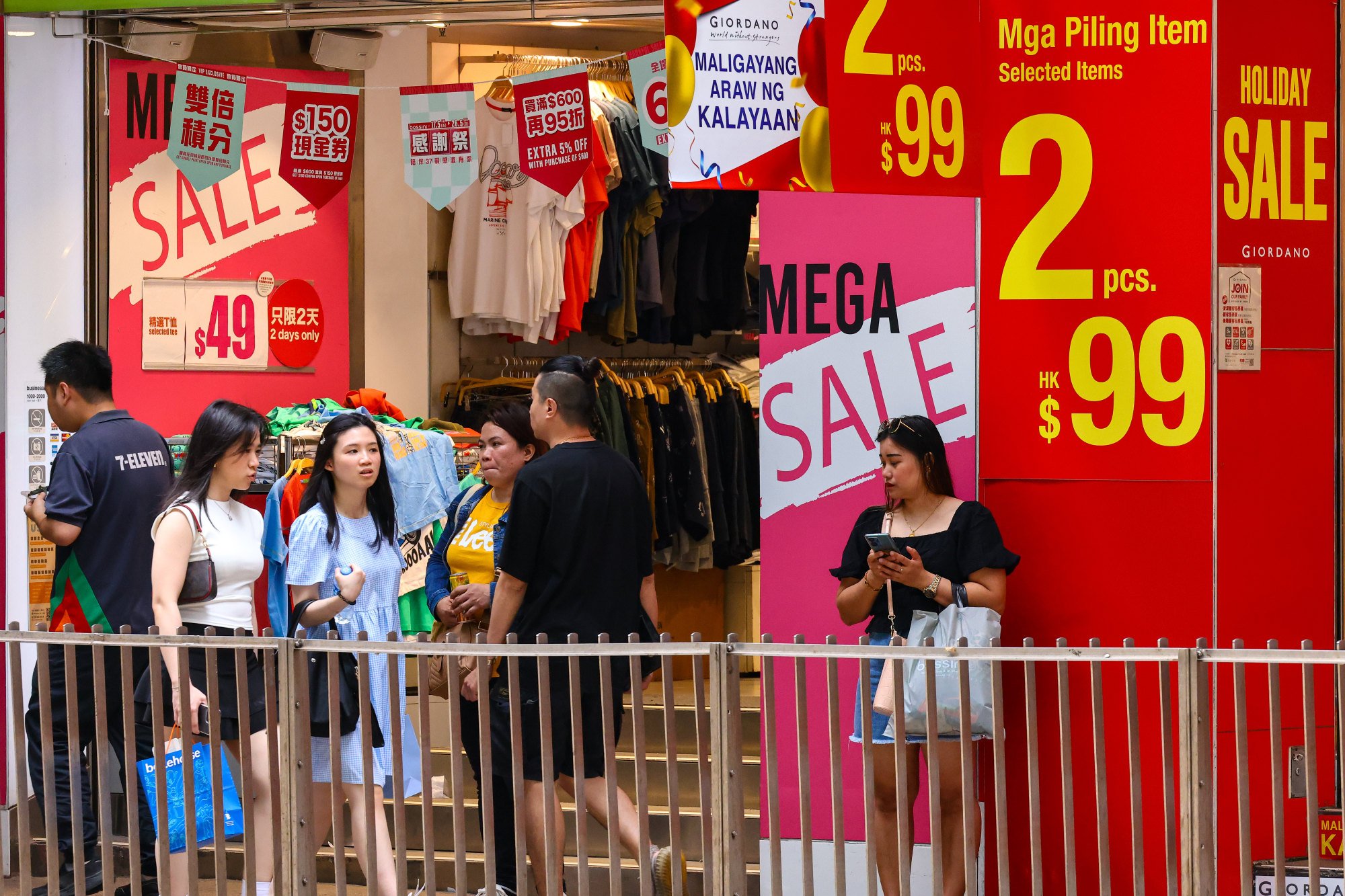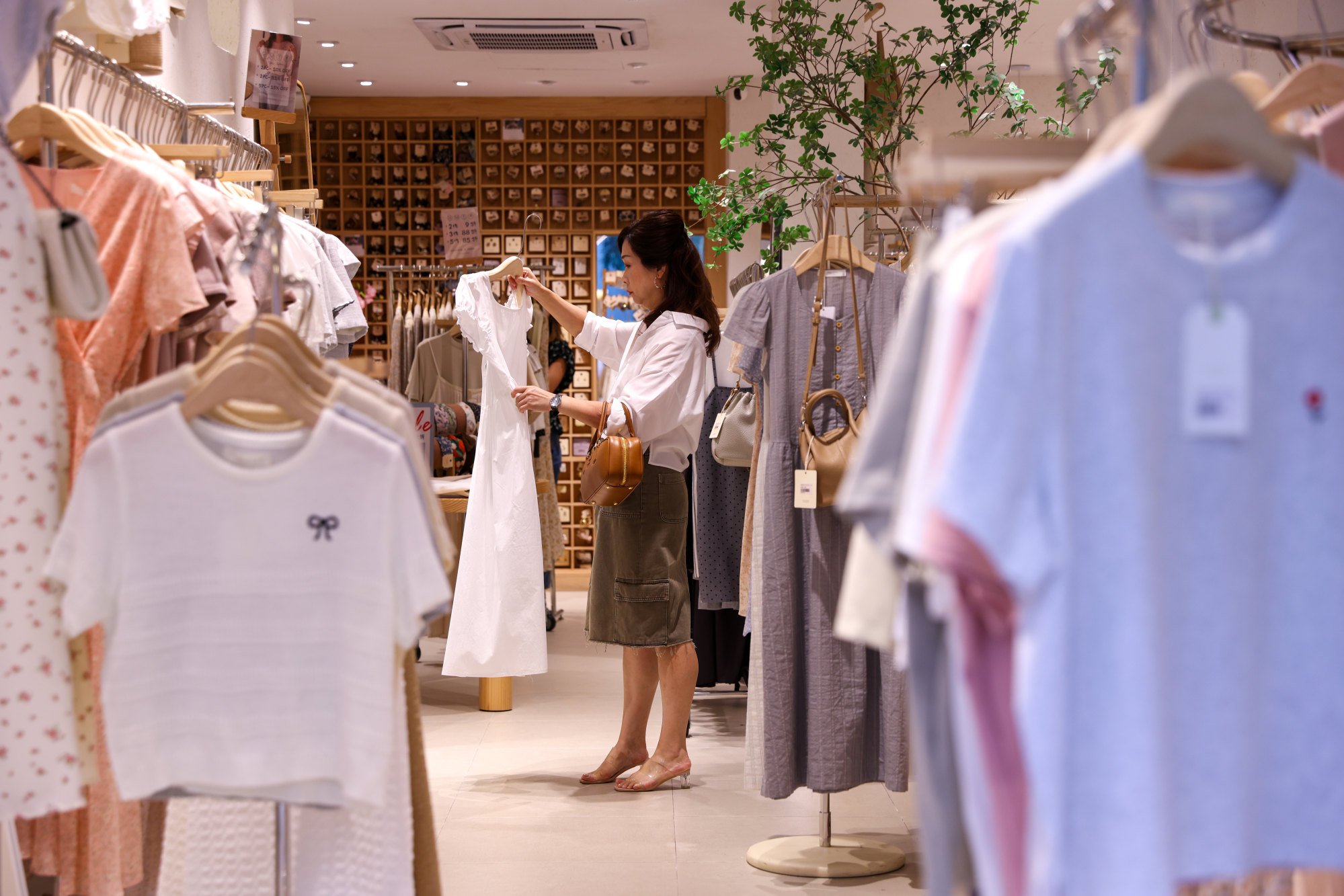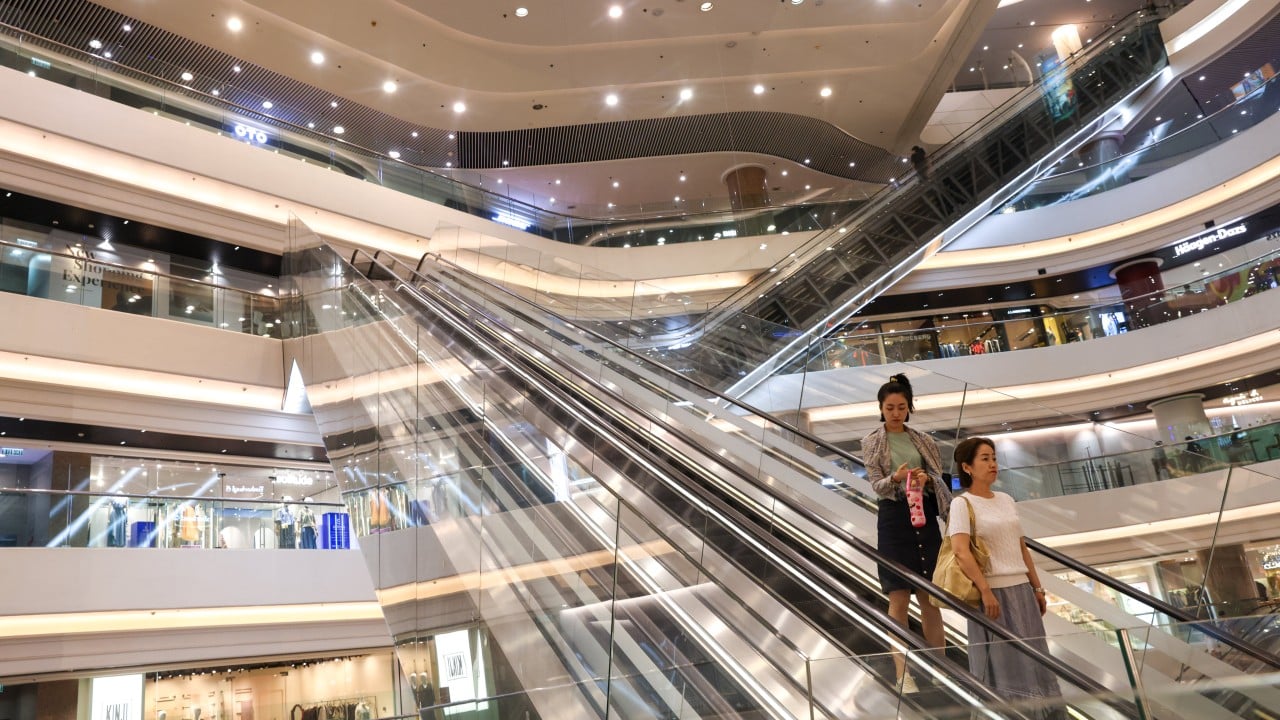Hong Kong’s retail sector can expect sales to decline by a percentage in the low double digits this year, an industry leader has said, citing the impact of staff shortages, high operating costs and external factors such as currency pressures.
Annie Tse Yau On-yee, chairwoman of the Hong Kong Retail Management Association, said on Sunday that earlier estimates of modest growth had taken a more pessimistic turn.
“We now have forecasts for the entire year, and we expect it to be a low double-digit decline,” she said.
Figures released by the Census and Statistics Department showed sales in January and February grew 0.9 per cent and 1.9 per cent year on year, respectively, before contracting 7 per cent in March. A further decline of 14.7 per cent was recorded in April, according to provisional numbers.
Although retail sales expanded 16.2 per cent in 2023, some of the growth seen so far was likely to be due to the low base of reference rather than a true sign of recovery, Tse said.
“Even with the growth we have observed, they are just a few percentage points or in the low double digits,” she said.
“They are not large jumps that hold much significance.”
She added the sector had “now hit rock bottom” and she was hopeful for growth next year.
The city’s retail industry continued to struggle with a host of issues, including a lack of staff and high operating costs, she said.
The sector was also hampered by external factors in its efforts to attract spending from mainland Chinese visitors, such as a strong Hong Kong dollar and a low duty-free shopping threshold for such tourists.
The current duty-free limit stands at 5,000 yuan (US$689) per person for each trip, a level that Tse urged authorities to increase.
She also called on the city to tackle issues closer to home, such as encouraging residents to start spending again locally.
“We are not talking about competing for low prices with the mainland, because we simply cannot compete with them on that front,” she said.
“But it is about doing more of our own promotions and maximising our value for money.
“We still have a lot of confidence in Hong Kong products.”

The government recently revealed more than 74 million trips were made by residents through border checkpoints to the mainland from May 2023 to April this year. The figure was more than double the about 28 million trips mainland visitors made to the city in the same period.
It also corresponded with industry concerns about a trend of Hongkongers flocking to neighbouring cities such as Shenzhen.
Simon Wong Ka-wo, the president of the Hong Kong Federation of Restaurants and Related Trades, said the popularity of the cross-border trips had affected Father’s Day business on Sunday.
But Wong, who estimated the entire industry would generate around HK$260 million (US$33.3 million) in sales for the entire day, said the performance was still “reasonable” given current economic conditions.
“Business seems to be better than expected so far,” he said.
“It’s likely to be due to Dragon Boat Festival and other activities in Tsim Sha Tsui that have driven up foot traffic and spending in the area.”
He added that while many families had chosen to head to Shenzhen to celebrate Father’s Day, the persistent heavy rain over the weekend might have caused some to stay in Hong Kong.
The afternoon and evening periods saw especially strong business, he said.
Joffrey Poussade, operations manager at Scarlett Cafe and Wine Bar in Tsim Sha Tsui, agreed that business had picked up from Saturday, when the restaurant reached 65 per cent capacity for dinner.
He said capacity hit 100 per cent for brunch and dinner on Sunday. Most customers were locals but some were visitors from the mainland.
“[It has been] good business overall this weekend, quite busy,” he said.
“[Diners have been opting for] sharing, not much drinking and with a lower budget compared with before [the pandemic].”

Restaurateur Christopher Przemyski, who owns several eateries in Sai Ying Pun, said business was “nothing special” on Sunday, and described the booking situation as “so-so”.
“Hong Kong’s economy is not great at all, many shops are closing down,” he said.
He also noticed customers had lower budgets even when they did dine out.
“Hong Kong people are [nervous] about the future, so maybe they are saving money.”
Industry leader Tse, meanwhile, said she generally welcomed the government’s recent launch of a courtesy campaign for the service industry, as some businesses were probably dealing with tourists for the first time.
“For our most traditional tourist districts, the service providers there are very skilled at providing good service to our visitors,” she said.
But since tourist behaviour had shifted following the pandemic, with more of a focus on “cultural tourism”, some could be venturing into districts that were not accustomed to having many foreign visitors.
She said improving service quality was important but the current challenging environment made it difficult for businesses to invest in such areas while also dealing with manpower pressures.
Statistics from the Tourism Board showed 11.2 million visitors came to Hong Kong in the first quarter of the year, about 62 per cent of pre-pandemic levels in 2019.


